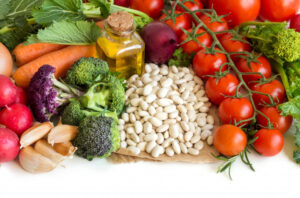The most common types of kidney stones are calcium stones followed by uric acid stones. Dietary changes and medical treatment are individualized based on the type of stone, to prevent recurrence.
One of the best things to avoid kidney stones is to drink plenty of water every day. This will help make sure that you urinate frequently to avoid any build-up of calcium or uric acid.
Exercise may sound good for your health, but if done in excess, also may lead to kidney stones. Loss of water through sweating whether due to these activities or just the heat of summer may lead to less urine production. The more you sweat, the less you will urinate, which allows stone-causing minerals to settle and deposit in the kidneys and urinary tract.
Hydrate with water. Be sure to keep well hydrated, especially when doing exercise or activities that cause a lot of sweating. Drinking 2-3 quarts of liquid or 8-12 cups per day to produce a good amount of urine. Try to avoid sodas (especially those with high amounts of sugar), sweetened iced tea and grapefruit juice.
What kind of diet plan is recommended to prevent stones?
There is no single diet plan for stone prevention. Most diet recommendations are based on stone types and individualized for each person.
Calcium Oxalate Stones: most common stones
Oxalate is naturally found in many foods, including fruits and vegetables, nuts and seeds, grains, legumes, even chocolate and tea. Some examples of foods that have high levels of oxalate include peanuts, rhubarb, spinach, beets, Swiss chard, chocolate and sweet potatoes. Limiting intake of these foods may be beneficial for people who form calcium oxalate stones which is the leading type of kidney stone.
- Uric acid stones: another common stone
Red meat, organ meats, and shellfish have high amounts of a natural chemical compound known as purines. High purine intake leads to a higher production of uric acid and a larger acid load for the kidneys to excrete. Higher uric acid excretion leads to more acidic urine. The high acid concentration of the urine makes it easier for uric acid stones to form.
To prevent uric acid stones, cut down on high-purine foods such as red meat, organ meats, beer/alcoholic beverages, meat-based gravies, sardines, anchovies and shellfish. Follow a healthy diet plan that has mostly vegetables and fruits, whole grains, and low-fat dairy products. Limit sugar-sweetened foods and drinks, especially those that have high fructose corn syrup. Limit alcohol because it can increase uric acid levels in the blood and avoid short term diets for the same reason. Decreasing animal-based protein and eating more fruits and vegetables will help decrease urine acidity and this may help reduce the chance for uric acid stone formation.
Diet Recommendations for Kidney Stones
General Recommendations

- Drink plenty of fluid: 2-3 quarts/day
- This includes any type of fluid such as water, coffee and lemonade which have been shown to have a beneficial effect with the exception of grapefruit juice and soda.
- This will help produce less concentrated urine and ensure a good urine volume of at least 2.5L/day
- Limit foods with high oxalate content
- Spinach, many berries, chocolate, wheat bran, nuts, beets, tea and rhubarb should be eliminated from your diet intake
- Eat enough dietary calcium
- Three servings of dairy per day will help lower the risk of calcium stone formation. Eat with meals.
- Avoid extra calcium supplements
- Calcium supplements should be individualized by your physician and registered kidney dietitian
- Eat a moderate amount of protein
- High protein intakes will cause the kidneys to excrete more calcium, therefore, this may cause more stones to form in the kidney
- Avoid high salt intake
- High sodium intake increases calcium in the urine which increases the chances of developing stones
- Low salt diet is also important to control blood pressure.
- Avoid high doses of vitamin C supplements
- It is recommended to take 60mg/day of vitamin C based on the US Dietary Reference Intake
- Excess amounts of 1000mg/day or more may produce more oxalate in the body



